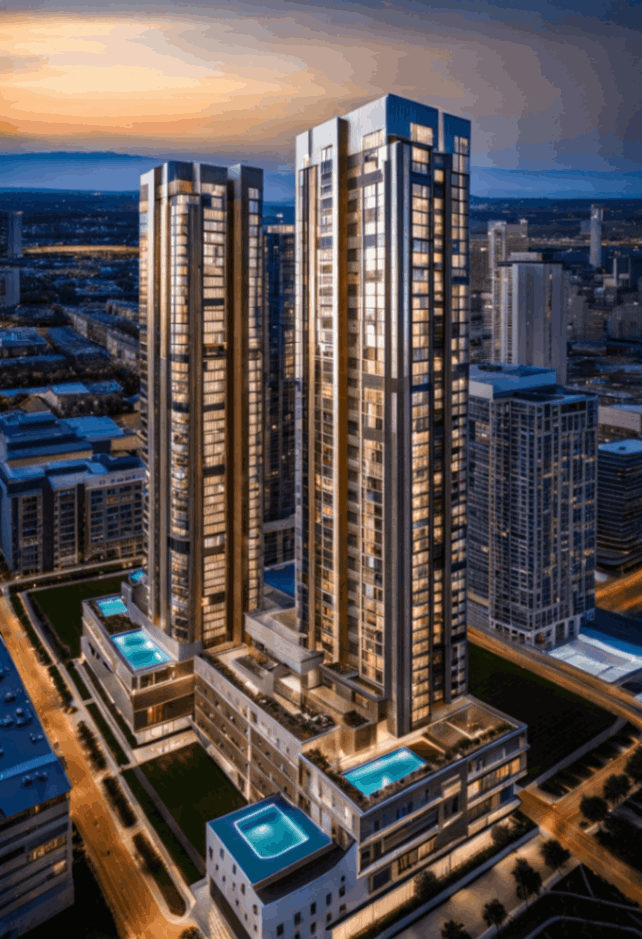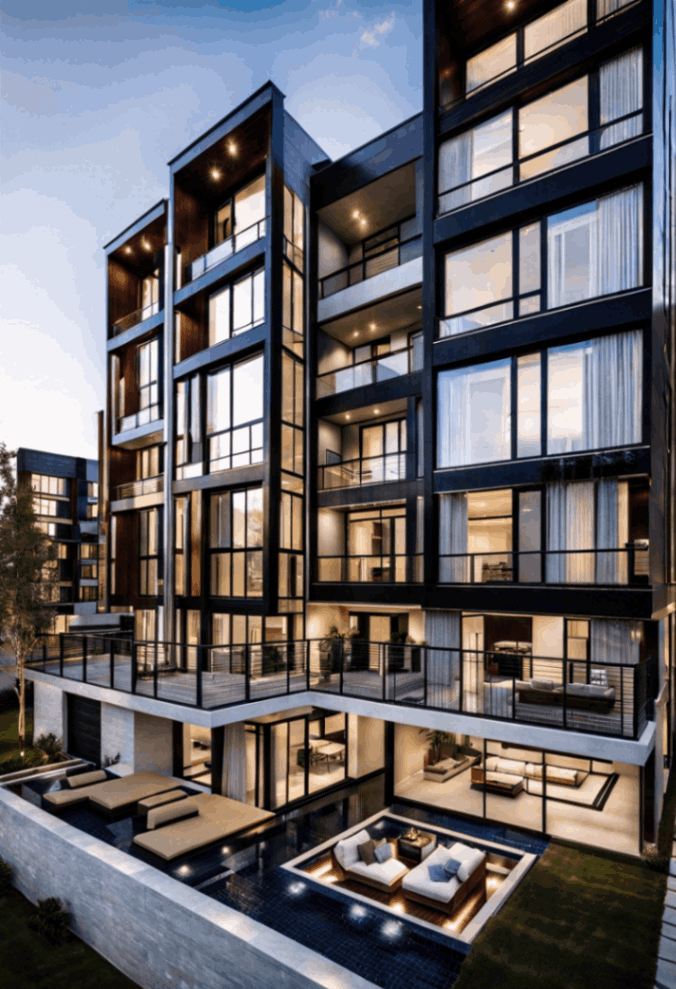

When it come to retail spaces, there are many factors that can influence their value and appeal. added details available check out it. These factors can have a big impact on whether people want to shop there or not.
One factor that play a big role is location. added information readily available click this. If a retail space is in a busy area with lot of foot traffic, it will be more appealing to shopper. On the other hand, if it is in a quiet area with no parking, people may not want to visit.
Another important factor is the design and layout of the space. A well-designed retail space with plenty of natural light and open floor plan can make customer feel comfortable and encourage them to stay longer.
The type of store that occupy the space can also affect its value and appeal. For example, a popular brand store may attract more customer than an unknown one.
Overall, there are many different factor that can influence the value and appeal of retail spaces. By considering these factors carefully, retailer can create spaces that are attractive to customer and increase their chance of success.
When it comes to marketing and selling retail properties, there are a number of strategies that can be used effectively. One key strategy is to highlight the unique features of the property, such as its location, size, and amenities. By showcasing these qualities, potential buyers are more likely to be attracted to the property.
Another important strategy is to target the right audience for the property. This means identifying who is most likely to be interested in purchasing or leasing the space and tailoring marketing efforts towards them. For example, if the retail space is located in a busy shopping district, targeting retailers looking to expand their business could be a successful approach.
Additionally, utilizing online platforms and social media can greatly increase exposure for retail properties. By creating engaging content and advertisements on popular websites and social media platforms, more people will be aware of the property and its benefits.
It's also crucial to work with experienced real estate agents or brokers who have a strong understanding of the local market. These professionals can provide valuable insights and guidance throughout the sales process.
Overall, by implementing these strategies effectively, selling retail properties can be a smooth and successful process.
Ensuring client satisfaction in the real estate sales process is crucial for building a positive reputation in the industry.. From start to finish, it's important to communicate effectively with clients and address any concerns they may have.

Posted by on 2024-06-05
When buying or selling property, it can be tempting to try and save money by not using a real estate agent.. However, there are many benefits to using a real estate agent that you may not have considered.
Firstly, a real estate agent is an expert in the local market and can help you navigate through the complexities of buying or selling property.

Posted by on 2024-06-05
Market analysis plays a crucial role in the real estate industry, helping agents and investors make informed decisions to maximize profits.. Without market analysis, it is difficult to understand the current trends and demands of the housing market.

Posted by on 2024-06-05
When it comes to selling your property, the key is closing the deal efficiently and making sure you get the most profit possible.. There are some insider secrets that can help you achieve this goal.
First off, don't underestimate the importance of staging your home.

Posted by on 2024-06-05
Understanding the needs and preferences of potential buyers in the retail sector is super important for retailers. It helps them to create a shopping experience that customers will love. By not knowing what shoppers want, businesses risk losing their business to competitors.
When retailers take the time to really listen to their customers, they can tailor their products and services to meet their needs. For example, if a store notices that customers are always asking for larger sizes in clothing, they can adjust their inventory accordingly. This shows that they care about what their customers want.
By neglecting to understand the needs and preferences of potential buyers, retailers could be missing out on valuable opportunities to grow their business. Customers want to feel like they are being heard and valued by the brands they support. If a retailer fails to do this, they may lose out on repeat business and loyal customers.
In conclusion, it is crucial for retailers to pay attention to what their customers want. By doing so, they can create a shopping experience that keeps people coming back for more. So let's make sure we are always listening and adapting to the needs of our buyers!


When it comes to renovating or upgrading retail spaces, there are some key tips that can help maximize their value. First off, it's important to think about the layout and flow of the space. You don't want customers feeling cramped or confused when they're trying to browse your products. By rearranging shelves and displays, you can create a more inviting atmosphere that encourages people to stick around and make a purchase.
Another tip is to pay attention to lighting and color schemes. Dark, dingy spaces can be a major turn-off for shoppers, so consider adding more natural light or brightening up the walls with a fresh coat of paint. This simple change can make a big difference in how people perceive your store.
Don't forget about the power of technology when it comes to renovations. Installing digital displays or interactive kiosks can help draw customers in and keep them engaged while they shop. Plus, having modern amenities like free Wi-Fi can show customers that you're keeping up with the times.
Lastly, don't underestimate the impact of small details like signage and branding. A cohesive look throughout your store can help build brand recognition and loyalty among customers.
Overall, by taking these tips into consideration during your next renovation or upgrade project, you can ensure that your retail space is maximizing its value and attracting more customers in no time!
So, like, I gotta tell ya about this super cool real estate sales in the retail sector, man. Like, these case studies showing successful sales of retail spaces are totally rad, you know? It's like, a big deal when someone can sell a retail space and make mad cash from it.
I mean, who wouldn't wanna read about that stuff? It's like, inspiring and stuff. These success stories show that anything is possible in the real estate game. You just gotta have the right strategy and hustle hard to make those sales happen.
And let me tell ya, these case studies ain't no joke. They're legit examples of how to slay in the retail sector. If you wanna learn how to make some serious bank from selling retail spaces, then you gotta check out these case studies.
So yeah, if you're all about that real estate life and want to see some awesome success stories in the retail sector, then these case studies are a must-read. Trust me on this one - you won't be disappointed!

Selling retail properties can be a daunting task, with many challenges and considerations to take into account. It's not just about putting up a "For Sale" sign and waiting for buyers to come knocking on your door. There are a multitude of factors that can affect the sale of a retail space, from market conditions to location, competition, and more.
One of the biggest challenges when selling retail properties is finding the right buyer. It's important to understand who your target market is and tailor your marketing efforts accordingly. You also need to consider the current state of the market - is it a buyer's or seller's market? This can greatly impact how quickly you're able to sell your property.
Another consideration is pricing. Setting the right price for your retail space is crucial in attracting potential buyers. You don't want to overprice and scare off interested parties, but you also don't want to underprice and lose out on potential profit. Finding that sweet spot can be tricky, but with research and expert advice, you can make an informed decision.
Location is another key factor when selling retail properties. A prime location can significantly increase the value of your property and attract more buyers. On the other hand, if your retail space is in a less desirable area, you may need to work harder to find interested parties.
Competition is also something to keep in mind when selling retail properties. If there are similar properties on the market, you'll need to find ways to differentiate yours and make it stand out from the rest.
Overall, selling retail properties requires careful planning, research, and strategy. By understanding the challenges and considerations involved in this process, you can increase your chances of successfully selling your retail space at a desirable price.